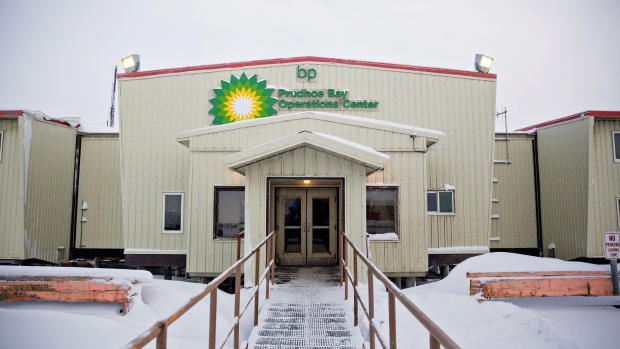Aug 27, 2019
BP to exit Alaska after 60 years in US$5.6B sale to Hilcorp
, Bloomberg News

BP Plc agreed to sell its entire business in Alaska to closely held Hilcorp Energy Co. for US$5.6 billion, ending a six-decade presence in the state as oil production there declines.
The deal includes BP’s operating stake in Prudhoe Bay, the largest-producing oilfield in U.S. history, as well as all its Alaskan pipelines, London-based BP said Tuesday in a statement. It makes Hilcorp, the oil company founded by Texas billionaire Jeffery Hildebrand, the second-largest producer in the state behind ConocoPhillips.
It’s the latest example of a supermajor retiring from the frontier oil discoveries of the late 20th century that cushioned them from OPEC’s ascendancy and forced them to learn to drill in some of the harshest and most forbidding corners of the globe.
Alaska, like Canada’s oil sands and the North Sea, is receding into a second-tier oil province as field depletion, cost-cutting and the rise of shale diminish the appeal of those resources.
The state’s oil output has slumped from its heyday in the late 1980s as discoveries dried up and major producers sought easier-to-produce crude elsewhere, most recently from shale rock in Texas. Hilcorp, along with ConocoPhillips, is one of the few big oil companies still interested in investing fresh capital in the state, which is home to protected ecosystems.
BP wants “to create a more growth-oriented asset base,” Pavel Molchanov, a Houston-based analyst at Raymond James Financial Inc., said by email. Alaska “is one of the world’s most mature oil-producing areas.”
Wood Mackenzie Ltd. values BP’s assets at a “slight premium” to the US$5.6 billion purchase price, almost a third of which will be paid subject to production over time. But for BP, the sale is strategic.
“We are steadily reshaping BP and today we have other opportunities, both in the U.S. and around the world, that are more closely aligned with our long-term strategy and more competitive for our investment,” BP Chief Executive Officer Bob Dudley said in the statement.
The sale forms the majority of BP’s two-year, US$10 billion divestment plan. It includes the stake in the Trans-Alaska Pipeline System which has been running below capacity for years as oil production in the state has declined. BP American depositary receipts rose as much as 1.1 per cent in New York trading.
What Bloomberg Intelligence Says
The deal “is logical and should be well received, given its indebted balance sheet exceeds the guidance range. The move is also consistent with the company’s long-term strategic shift toward shale and gas/LNG exposure from legacy conventional oil.”
--Will Hares, senior industry analyst
In the last five years, Hilcorp has bought more than US$6 billion oil and gas assets, and produced about 108,000 barrels of oil equivalent per day of liquids, according to its website. The company in 2017 acquired assets in the San Juan Basin of New Mexico for US$3 billion, and has holdings in Wyoming and Alaska.
Prudhoe Bay has produced about 13 billion barrels over its life and has a further 1 billion barrels of potential, BP said.
Exxon Mobil Corp. may be next to sell Alaskan assets, Wood Mackenzie said. The oil major wants to raise US$15 billion from sales globally by the end of 2021. In the past few years Anadarko Petroleum Corp., Pioneer Natural Resources Co. and Marathon Petroleum Corp. has sold out of the state.
Alaska’s annual production peaked at 2 million barrels a day in 1988, the year before the Exxon Valdez oil spill. Last year, it averaged 479,000 barrels a day.
The U.S. Interior Department is preparing to sell drilling rights in the Arctic National Wildlife Refuge later this year. The refuge’s coastal plain, known as the 1002 area, is thought to contain billions of barrels of oil, but tapping it was off-limits for decades until 2017, when Congress ordered the government sell drilling rights there under the premise it would raise money to offset tax cuts.
BP was one of the original partners in building the 800-mile (1,300-kilometer) Trans-Alaska Pipeline System in 1977, designed to bring oil from the North Slope to the port of Valdez on Alaska’s southern coast. It was one of the largest privately funded construction projects in history. BP holds a 49 per cent stake in the pipeline, with ConocoPhillips, Exxon Mobil Corp. and Unocal Pipeline Co. holding the remainder.


